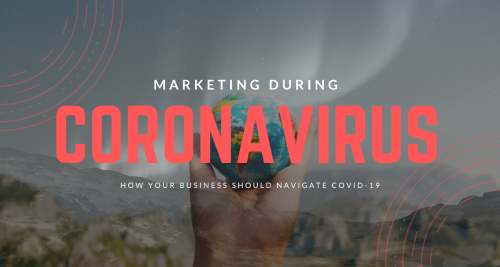
By: Caroline Berryman, CMMP—Editor-in-Chief
As we isolate ourselves to stop the spread of COVID-19, brands are responding to give their customers by providing updates on things like health and safety protocols, or the availability and delivery of their products and services. But when a company suddenly emails its customers after a long period of no contact, or sends a self-indulgent email about its random acts of kindness, it can backfire.
It’s a common marketing tactic to connect a product or brand to current events. Gillette did this with its Super Bowl commercial that addressed the #MeToo movement. This is called cultural marketing, and it can be a powerful tool. But during this time of unprecedented fear and economic disruption, cultural marketing needs to be implemented very carefully. Brands don’t want to look like they’re ignoring the pandemic, or attempting to benefit from it. Many companies are changing their marketing strategies to fit into this new environment, in small and big ways. For instance, it might not make sense for clothing brands to advertise prom dresses right now since there are bans preventing social gatherings. Promoting comfortable, casual ‘working from home’ clothing options would be more appropriate.
An increase in traffic on social and media platforms is expected because people are isolated indoors so “content is going to be king” during this pandemic. Brands will be hard at work trying to maintain and grow their customer base with online promotions. Some brands are taking the opportunity to feature photo contests or informative and educational content. However, some brands did get caught with ad campaigns that had to be cancelled due to way in which their products were depicted. For example, KFC and Hershey have removed ad campaigns that didn’t fit with our new reality of constant handwashing and social distancing. KFC’s ads depicted people eating fried chicken and licking their fingers; Hershey’s featured too much hugging and handshaking, given the circumstances.
Marketers need to look at annual launch plans and determine if changes are required. It may be necessary to change the strategy, such as packaging multiple offerings into an overarching theme rather than having a series of launches. Launches often coincide with conferences and other public events, which have obviously been postponed or cancelled. Marketers will need to think about how they can create digital launches for their brands and implement their plans online.
Reconsidering go-to-market plans is a key action marketers can take to help navigate this difficult time. It is critical to understand what has changed and what consumer needs are most important. Marketers have spent a lot of time creating marketing plans for 2020, which may no longer be relevant. Some may have started implementing their plans when the pandemic hit and now need to update their plans and develop new strategies and tactics. Now is the time for marketers to review existing target market segments and determine the impact of COVID-19.

